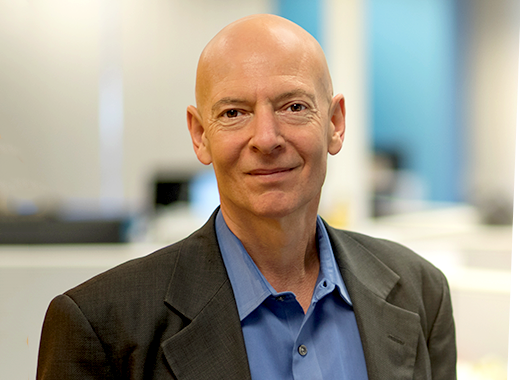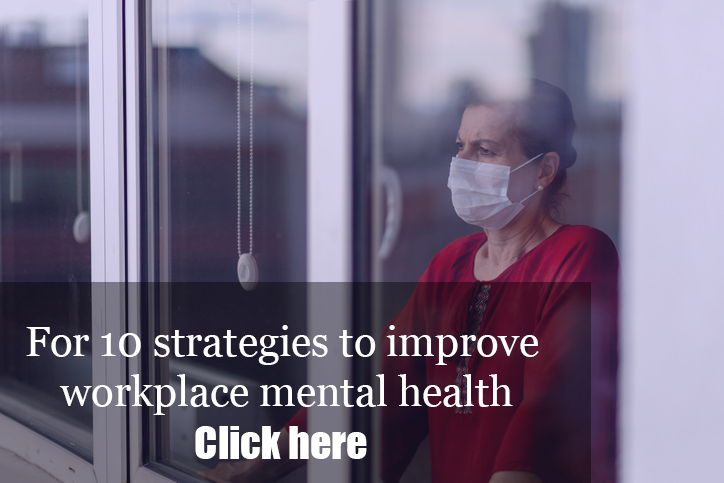Even before COVID, mental health was already a significant concern in the workplace. Many employees were facing threats to their emotional wellbeing while lacking significant help from their employer.
“We were already behind the eight ball,” says Andrew Shatté, chief knowledge officer and co-founder of meQuilibrium, a digital coaching program that aims to build employees’ resilience.
Shatté recently spoke with HRE about how employees are struggling, why uncertainty is making it worse and what employers stand to lose if they don’t help.
HRE: We have this perfect storm of concerns and stressors this year. Tell me where we are as far as employees’ mental anguish and how COVID-19, the election and more are affecting that.

Shatté: We saw a 35% in increase in severe stress just between December 2019 and June of this year. The increase in extreme stress was 18 times greater in women than in men. Women are traditionally being asked to do more with less; they’re in the workforce but they’re also at home bearing the brunt there. With COVID-19 and remote working, it was all in one place, and the stress to get it all done was overwhelming. Then there was social unrest, a lot of soul-searching in the nation. Then the lead-up to the election was very stressful. A human being’s resilience has a certain amount of momentum going for it, and with each one of these things, it just slows that resilience momentum down, amps up the stress. Then we fall into predicable mistakes in living that compound all of this: Once resilience is starting to be overwhelmed by our stress, then we think problematically and we behave problematically.
HRE: What kinds of behaviors are those?
Shatté: We’re not getting the sleep we need; our bodies are under enormous amount of stress. Once our brains are under fight-or-flight mode, we’re no longer doing good probability assessments or problem-solving. We’re trying to problem-solve our worst fears rather than what’s most likely to come and get us. That means we’re really freewheeling on anxiety and we’re not finding areas of control where we have them. Then we do bad things in terms of our own self-care: poor sleep, bad diet, not exercising, perhaps using alcohol as something to get us through, overeating, not eating well. All of this is creating a real dip in wellbeing. It’s affecting us as employees; it’s affecting us as people.
Related: Employers are making mental health strides; Why they shouldn’t let up
HRE: How does the uncertainty come into play here–as far as the election results that dragged on and the pandemic still raging without an end in sight?
Shatté: Change is bad, but the one thing that’s worse is uncertainty. In conditions of uncertainty, as one CHRO said to me [about] COVID, “People keep saying this isn’t a sprint; it’s a marathon.” But, he said, “This isn’t a marathon either. Because in a marathon, the gun goes off and you know you have to run 26.2 miles. With this, we don’t even know where the finish line is.” We’re being asked to run as fast as we can as far as we can, but no one can tell us when it’s going to end.
 HRE: So, what is the role employers should play in this? What can company or HR leaders be doing to help?
HRE: So, what is the role employers should play in this? What can company or HR leaders be doing to help?
Shatté: People who are providing a supportive environment are doing a few things: They are really into integrity, there’s open communication, a lot of transparency. Supervisors who inject positivity into the mix, while having empathy, is key too. Getting on the phone or getting on a Zoom call one on one and saying, “Hey, how are things going for you? Is there anything I can help you with? Can I help you with the flexibility with your day so you can spend the first couple hours of your day helping your kid with online school?” That kind of empathy is critical, but it often gets lost in translation. We found that, during this time, people were so concerned about getting their own stuff done that they didn’t have the bandwidth to worry about others. But we need to start to reverse that. We need to start reaching out because it will pay dividends.
Another thing HR or a supervisor can do is have a sense of mission and purpose. When you were in a physical location with others, it was energy around a project that made you feel like what you were doing was worthwhile, but many of us who are remote working are a couple steps further removed from how what we do matters. Having a supervisor, having an HR department that routinely says, “Hey, I know it’s really difficult for you right now … our project matters in terms of this way, and it matters in terms of the company this way, so what you’re doing really matters,” that makes a great difference.’
HRE: These stresses are ongoing and will be for the imminent future. If employers don’t take this seriously, what do they stand to lose?
Click HERE to take HRE‘s What’s Keeping HR Up at Night? survey.
On the other hand, we see organizations who say, “We plan to roll out something in 2022.” I find myself saying to those people, “You’re going to miss the boat.” Our organizations are going to be judged not just by their current employees but by future employees on how we treat our people right now. Once upon a time, you could get away with this stuff, but sites like Glassdoor now make this impossible. And we know that millennials and post-millennials have a tendency to say, “I’m not going to work for an organization that doesn’t care for their people,” whereas my generation or my dad’s generation, that didn’t enter the equation. So, if [employers] don’t do the right thing right now and get seen to be doing the right thing right now, current employees are going to become disengaged. Once that happens, you’re going to have a world of pain.

